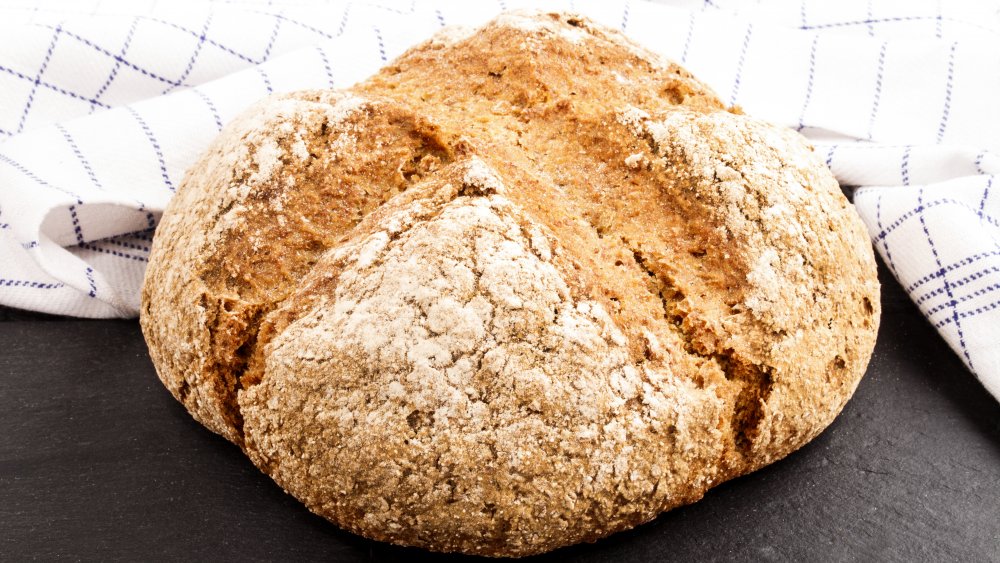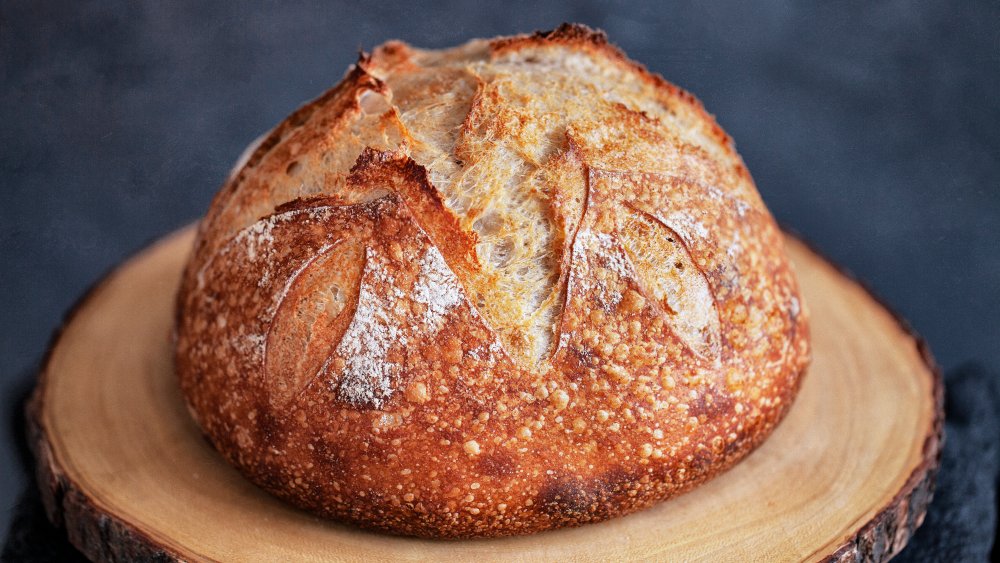The Real Difference Between Soda Bread And Sourdough Bread
If you go on a trip to Ireland, one thing you'll see on almost every traditional restaurant menu is soda bread. It may be unfamiliar to those on the other side of the pond, but it's a staple on the Emerald Isle. What sets it apart from other types of bread is the fact that it uses sodium bicarbonate (baking soda, hence the name) in place of yeast to get the bread to rise (via Oola). Whereas you may have to keep an eye on the thermometer when you're baking bread with yeast because it's very important to control the temperature, making bread with baking soda allows for more flexibility as the temperature doesn't have to be so closely monitored.
The bread also uses buttermilk in the recipe due to its lactic acid content. When the acid in the buttermilk is combined with the sodium bicarbonate, carbon dioxide is created, which makes the bread rise. Soda bread is often termed a "quick bread" because this chemical reaction happens so quickly (via True Sourdough).
Sourdough needs a starter
Soda bread is not to be mixed up with sourdough, which is a completely different type of loaf. In fact, one of the only similarities between the two is that neither one uses yeast. Sourdough uses a starter, which uses water, flour, and a bit of sugar which reacts with naturally-occurring yeast in the environment to rise (via NPR). Waiting for sourdough to rise takes a significantly longer time than soda bread — sourdough certainly can't be termed a quick bread.
Starters can survive and be used for extremely long periods of time if kept properly and cared for. There are some accounts of starters lasting for more than a decade. Sourdough traces its roots to ancient Egypt, where it might have been invented by accident. It is the oldest type of leavened bread in the world. It's widely associated with Northern California. During the Gold Rush, sourdough became a hit in San Francisco because miners were able to keep sourdough starter in their backpacks so they could make bread in places where they were unable to find yeast.

